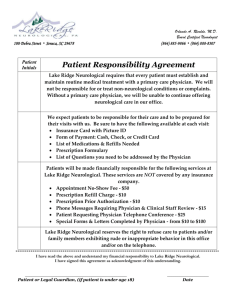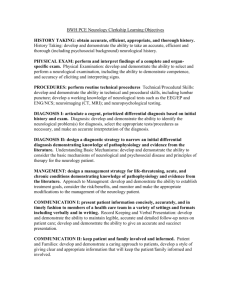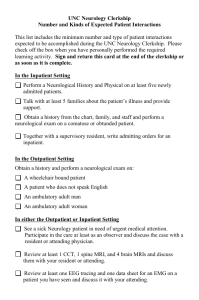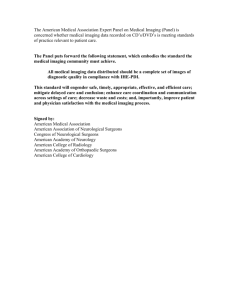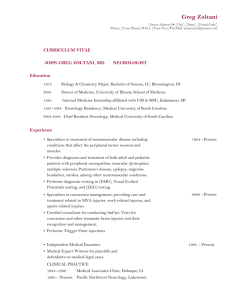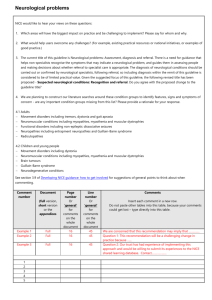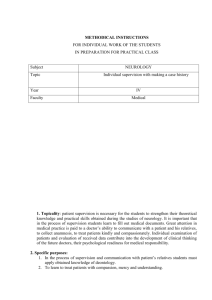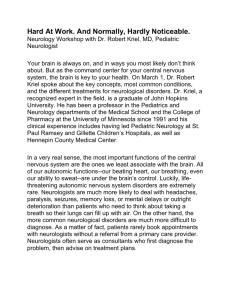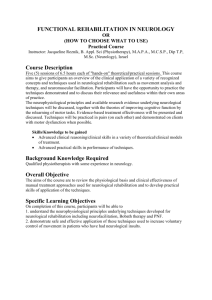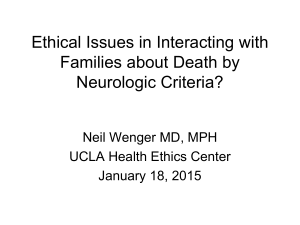NEUROLOGY
advertisement
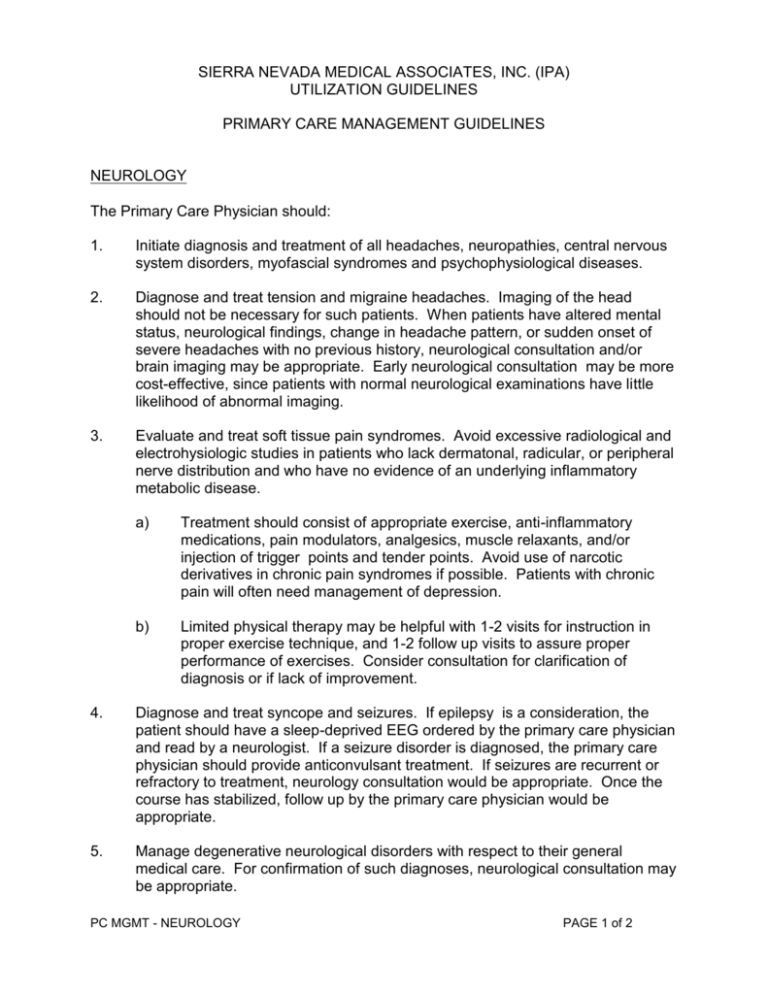
SIERRA NEVADA MEDICAL ASSOCIATES, INC. (IPA) UTILIZATION GUIDELINES PRIMARY CARE MANAGEMENT GUIDELINES NEUROLOGY The Primary Care Physician should: 1. Initiate diagnosis and treatment of all headaches, neuropathies, central nervous system disorders, myofascial syndromes and psychophysiological diseases. 2. Diagnose and treat tension and migraine headaches. Imaging of the head should not be necessary for such patients. When patients have altered mental status, neurological findings, change in headache pattern, or sudden onset of severe headaches with no previous history, neurological consultation and/or brain imaging may be appropriate. Early neurological consultation may be more cost-effective, since patients with normal neurological examinations have little likelihood of abnormal imaging. 3. Evaluate and treat soft tissue pain syndromes. Avoid excessive radiological and electrohysiologic studies in patients who lack dermatonal, radicular, or peripheral nerve distribution and who have no evidence of an underlying inflammatory metabolic disease. a) Treatment should consist of appropriate exercise, anti-inflammatory medications, pain modulators, analgesics, muscle relaxants, and/or injection of trigger points and tender points. Avoid use of narcotic derivatives in chronic pain syndromes if possible. Patients with chronic pain will often need management of depression. b) Limited physical therapy may be helpful with 1-2 visits for instruction in proper exercise technique, and 1-2 follow up visits to assure proper performance of exercises. Consider consultation for clarification of diagnosis or if lack of improvement. 4. Diagnose and treat syncope and seizures. If epilepsy is a consideration, the patient should have a sleep-deprived EEG ordered by the primary care physician and read by a neurologist. If a seizure disorder is diagnosed, the primary care physician should provide anticonvulsant treatment. If seizures are recurrent or refractory to treatment, neurology consultation would be appropriate. Once the course has stabilized, follow up by the primary care physician would be appropriate. 5. Manage degenerative neurological disorders with respect to their general medical care. For confirmation of such diagnoses, neurological consultation may be appropriate. PC MGMT - NEUROLOGY PAGE 1 of 2 6. Strokes and TIAs should be managed by the PCP although brief consultation by a neurologist may be appropriate. If a classic ischemic attack is associated with a carotid lesion for which surgery would be appropriate, referral to an appropriate surgeon is indicated. 7. Evaluate neuropathies and radiculopathies with appropriate radiological, laboratory, and electrophysiological studies. Consider consultation if no improvement or uncertain diagnosis after 6 to 8 weeks of conservative treatment or if there is a progressive neurological defect. 8. Lumbar spinal stenosis may be treated conservatively if mild or patient is not a surgical candidate. Most myelopathies should be referred. PC MGMT - NEUROLOGY PAGE 2 of 2
